|
|
0 7 . 1 6 . 2 5
All Access
6 items
|
|
|
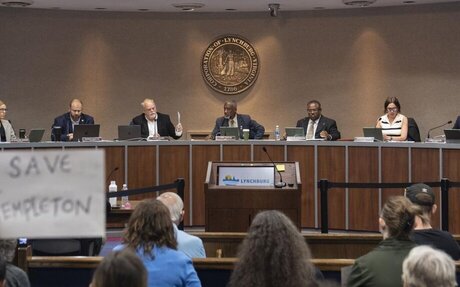
|
Local
Members of Lynchburg City Council have proposed several changes to its Rules of Procedure in response to incidents at council meetings in 2025. Vice Mayor and Ward III Councilman Curt Diemer and At-large Councilman Martin Misjuns jointly proposed a change that would give the presiding officer the leeway to allow residents of Lynchburg to address the council during the public comment period before non-residents. In another proposed change, Diemer wants to prohibit councilmembers from leaving the council’s dais during a public comment period or any public hearing for the purpose of interacting with speakers or members of the public. A councilmember would need to get permission from a majority of councilmembers present to be able to interact with a member of the audience under Diemer’s proposed change. In one of his proposed rule updates, Mayor Larry Taylor wants the rules to state: “Speakers are not permitted to approach the Council’s dais during the Public Comment period or during any public hearing.”
|
|
|
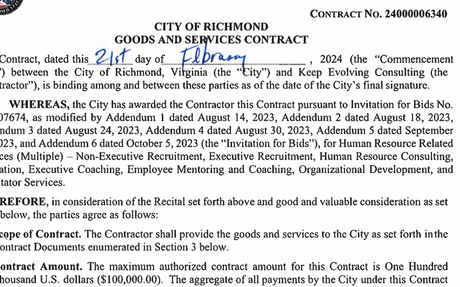
|
Local
NOTE: The owner of Keep Evolving Consulting, llC was misidentified in the story below, a fact corrected by the Richmond Times-Dispatch on July 24, 2025.
Richmond spent $13,500 to have a private consulting firm conduct the investigation that ultimately led to former Inspector General Jim Osuna’s departure from his city post, records obtained by The Times-Dispatch show. The payments were part of the city’s contract with Keep Evolving Consulting, LLC: a Charlotte, North Carolina-based firm founded by LaToya Dorsey. Since October 2023, the city has spent $398,016 at Keep Evolving Consulting. The services provided have included human resources probes, “policy review, climate assessments and training,” a city spokesperson said in response to questions. Asked why the city had outsourced the HR investigation, the spokesperson said the practice was common.
|
|
|

|
State
Virginia State Police are investigating Tavares Floyd — the former Richmond 6th District City Council candidate whose campaign finance filings came into question last October after multiple alleged donors told The Times-Dispatch they made no such contributions. The Times-Dispatch on Monday submitted a request under the Virginia Freedom of Information Act for any and all interview notes related to state police’s probe into Floyd’s campaign. A state police FOIA officer responded by immediately invoking the seven-day extension to FOIA. But early Tuesday morning, the FOIA officer reached out again to mark the request closed. “The records you have requested are part of an active criminal investigative file,” she wrote. “Active criminal investigative files are exempt from the production requirements of the Virginia Freedom of Information Act.” Under FOIA, records related to both open and closed criminal investigations are exempt from disclosure — meaning any criminal investigative file can theoretically be withheld from the public indefinitely.
|
|
|
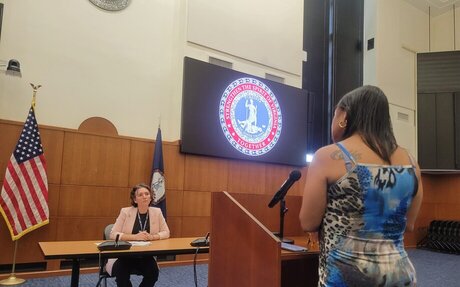
|
State
As the state grapples with public concerns about conditions inside prisons and the complaint reporting process, prisoners’ grievances are on track to being heard and, when possible, investigated, Virginia Corrections Ombudsman Andrea Sapone shared in a meeting Tuesday. Her office is also working on a memorandum of understanding with the Virginia Department of Corrections to facilitate how to share records and other information relating to investigations. Sapone said her team has finalized its draft and is awaiting a response from VADOC. The Mercury made a Freedom of Information Act request for the ombudsman’s draft of the MOU, but the overarching Office of the State Inspector General rejected it. The office cited state code meant to protect records relating to investigations as the reason it was exempt from filling the request. Though Sapone plans to investigate VADOC’s Red Onion, her office confirmed the MOU is not specific to an investigation.
|
|
|
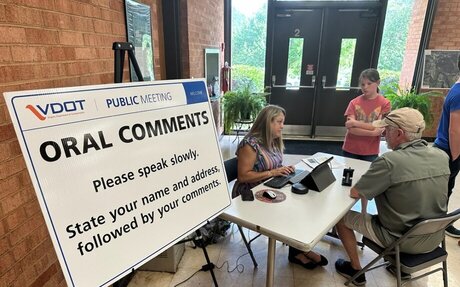
|
State
A 20-mile rails-to-trails project spanning Botetourt and Craig counties drew jeers to cheers at the first of two public meetings Tuesday night at Eagle Rock Elementary School. The open house coordinated by the Virginia Department of Transportation attracted 110 people, from green-shirted “DeRail the Trail” opponents to biking, hiking and horseback-riding enthusiasts wearing stickers supporting the Craig Botetourt Scenic Trail. During the two-hour meeting, they mingled with each other and VDOT staff to ask questions, study concept boards and submit comment sheets or provide oral feedback to a court reporter.
|
|
|
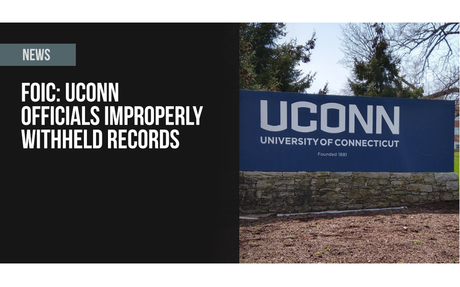
|
In other states-Connecticut
The University of Connecticut (UConn) violated the Freedom of Information Act (FOIA) by improperly withholding records under the attorney-client privilege exemption and failing to turn over records that were created by requester Paul Manocchio, according to a recent decision from the Freedom of Information Commission (FOIC). On May 3, 2024, Manocchio submitted a complaint for all communications related to complaints or investigations against Cathleen Hammel, a computer support technician in the dean’s office at the Neag School of Education. On May 13, Manocchio submitted two additional requests seeking email and telephone records, as well as computer and phone activity for additional UConn employees and several search terms. On June 17, 2024, UConn turned over what they said were responsive records. The school redacted “emails to which the complainant was ‘a party,’” according to the hearing officer’s report, and records they claimed were exempt from disclosure because they were protected by attorney-client privilege. The FOIC found UConn improperly withheld the records it withheld under FOIA’s attorney-client privilege exemption because “disclosure of an attorney-client privileged communication to a third party waives the privilege.” The hearing officer found that UConn disclosed an email to Manocchio that contained a summary of the legal advice it was seeking to withhold under the attorney-client privilege, thus waiving the exemption.
|
|
|
|
|
|
|
|
|